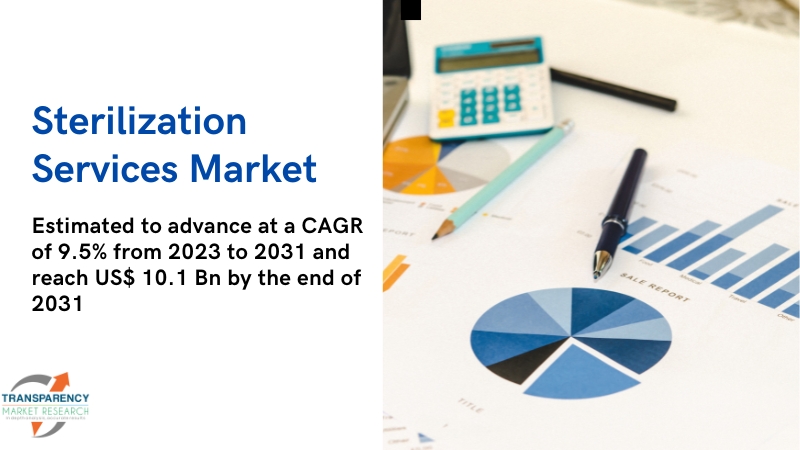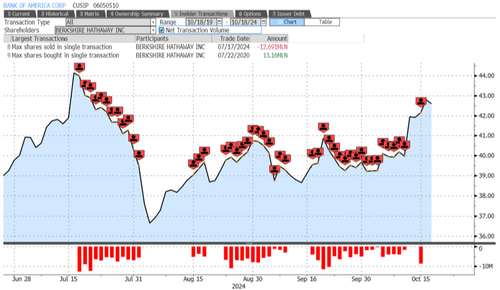
cemagraphics Performance and Positioning 1 The TCW Emerging Markets Income Fund, I Class ( MUTF: TGEIX , "Fund") returned 0.45% for the second quarter of 2024, outperforming the JP Morgan EMBI Global Diversified (EMBI GD) return of 0.30% by 15bps.
Relative outperformance for the quarter was driven by security selection decisions, overweight positioning to high yield ('HY') and off-index exposure to corporates. For the first half of 2024, Emerging Markets ('EM') HY sovereigns returned 5.22%, with single Bs up 4.
86% and distressed (C-rated) up 21.53%, compared to a return of -0.45% for EM investment grade ('IG') sovereigns.
This outperformance of high yield is largely a reflection of macro stability, fiscal consolidation, financial support from the IMF or FDI and/or progress on restructurings. That said, the outperformance of high yield began to stall during the latter half of the period, as the U.S.
rates rally benefited investment grade. From a country perspective, relative outperformance was driven by the following: Overweight positioning in Venezuela as bonds benefited from index inclusion. Following the full implementation of index inclusion, the Fund's position is closer to neutral.
Security selection in Brazil (particularly metals and mining corporate exposure) and in Mexico (quasi-sovereign oil & gas exposure which rallied on expectations of continued financial support from the government) Overweight positioning and security selection in Lebanon which benefited from financial support from the EU Overweight positioning and security selection in Zambia, where bonds benefited from the conclusion of the restructuring process for dollar debt and an improving growth outlook. On the other hand, the portfolio's core allocation to EMFX hurt relative performance, but we are maintaining this exposure - via a basket of options - given our longer-term view that the US dollar should weaken as U.S.
growth slows and rates decline. The portfolio's overweight positioning and security selection in Nigeria and Gabon also hurt relative performance. We shifted to a neutral position in Gabon based on our view of fiscal weakness; however, we are maintaining our overweight in Nigeria driven by our constructive view of monetary reforms and fiscal support from elevated oil prices.
During the quarter, we eliminated our underweight to duration by reducing our interest rate hedges and adding select IG sovereign exposure. We reduced overweights to select frontier sovereigns where further appreciation will need to rely on external factors (a beta rally), while continuing to emphasize those with idiosyncratic drivers. From a regional perspective, we are overweight Africa and Latin America, against an underweight in Asia and the Middle East, and a marginal overweight in Europe.
From a country perspective, we added exposure to Turkey (corporate exposure), South Africa (idiosyncratic performance drivers), Indonesia (covered part of the underweight), Morocco (participated in a new corporate issue), and Peru (shifted from underweight to modest overweight). On the other hand, we reduced exposure to some high yield issuers like Kenya, Gabon and Angola, and corporate exposure in Israel. Investment Environment First half performance for Emerging Markets Fixed Income has been characterized by the following: Outperformance of Emerging Markets dollar-denominated sovereigns (2.
34%) vs. EM local currency (-3.71%), as the latter has been impacted by dollar strength (+4.
5%). Outperformance of EM HY sovereigns, up 5.22%, with single Bs up 4.
86% and distressed (C-rated) up 21.53%, compared to a return of -0.45% for EM investment grade sovereigns.
This outperformance of high yield is largely a reflection of macro stability, fiscal consolidation, financial support from the IMF or FDI and/or progress on restructurings. More recently however, investment grade assets have started to outperform high yield as U.S.
rates have rallied. Regional outperformance of Africa (+6.28%) and Latin America (+2.
41%), with countries including Ecuador (+45.70%), Argentina (+30.94%), Zambia (+23.
12%), Egypt (+20.38%), Ghana (+16.72%), and Bolivia (+16.
25%) all outperformed the 14.48% return of the S&P 500 ( SP500 , SPX ). Spread widening of 7bps for the EMBI Global Diversified index, ending the first half at 391bps.
This is largely a reflection of Venezuela re-entering the index. Excluding Venezuela, spreads would be ~46bps tighter. Fundamentals and Valuations Update: Global Growth: Global growth forecasts for 2024 appear largely in line with the 3.
2% figure in 2023. Notably, the EM-DM economic growth differential is forecast to reach its widest level in almost a decade, as some large DM economies decelerate or struggle to recover. This is in the context of a conservative estimate for growth in China (4.
75% versus the 5.0% government target). Further, Emerging Markets represent 80% of global growth.
Central Bank Policy: The market is likely to continue to be driven by expectations for U.S. monetary policy.
While EM central banks started hiking rates a full year before the Federal Reserve (Fed), the pace has slowed as expectations for Fed rate cuts have been pushed out. As such, real rates are high particularly in Latin America and Central and Eastern Europe ('CEE'), averaging 3.8% and 2.
2% 2 above their pre-COVID levels, respectively. In Latin America, the Fed's stance implies a shallower rate cutting path, particularly over the next twelve months. Cutting cycles are already underway in the CEE.
We believe there will be continued cuts in Hungary and Czech in the second half of this year to neutral in mid-2025. In Poland, we see only modest cuts over the horizon, following the ECB relatively closely. Inflation: EM central banks started hiking rates a full year before the Fed.
As a consequence, EM inflation has fallen faster than inflation in the developed world and consistently surprised to the downside. The inflation outlook does vary across regions. Emerging Asia continues to see a disinflationary drag from China.
The CEE is forecast to have inflation close to target by the middle of 2025. Turkey and Egypt, the high inflation economies in the region, are both likely to see substantial normalization over the course of 2025. In Latin America (ex-Argentina), disinflation continues but at a slower pace with easing toward targets over the next 12-18 months.
Fiscal Dynamics: While Debt/GDP and deficit levels continue to rise in Developed Markets, many EM countries have established a track record of more prudent macro policies, including more conservative fiscal management, a gradual reduction of subsidies, and a growing commitment to monetary orthodoxy via inflation targeting. Many countries have programs with the IMF which impose fiscal constraints, some have obtained substantial financial support from regional peers, and others have instituted more orthodox policies post elections to tackle macroeconomic imbalances. In light of these macro improvements and financial resilience in many EM countries in recent years, we do not anticipate any sovereign defaults in 2024, and likely not in 2025 as well.
Ratings upgrades are also likely to exceed downgrades for the first time in a decade in both 2024 and 2025. Valuations: While credit spreads are at the tighter end of historical ranges, yields remain attractive in EM. For example, over the past decade, EM investment grade yields are in the 94 th percentile and the spread differential between EM HY sovereigns (730bps) and U.
S. HY (337bps) is in the 96 th percentile. Source: JP Morgan; Data as of July 1, 2024 We are monitoring the following risks: Election Volatility: Election-related uncertainty is likely to increase market volatility into and following the November 5 election.
Key risks include both a contested U.S. election result and highly divergent potential outcomes for U.
S. fiscal, trade and foreign policies, with implications for the US dollar and U.S.
Treasury yields. Under a Trump presidency, economic policy could eventually lead to higher inflation and slower growth if policy proposals with regard to increased tariffs and extreme curbs on immigration are carried out in full. Geopolitical risks could increase as well stemming from less financial support for Ukraine, an uncertain U.
S. commitment to NATO, and Trump campaign pledges to deport millions of undocumented immigrants. The second round French National Assembly elections (July 7) may weaken France's position at the heart of Europe.
If the right-wing National Rally party wins a majority, it could spark tensions between France and the EU/Germany with possible knock-on effects for EU support of Ukraine, EU sanctions against Russia, and the EU's green transition. Mexico's transition to a new Congress (September) and new President (October) may see the ruling Morena party attempt controversial constitutional reforms to the judiciary that could have a structurally negative impact on business and investor confidence. Israel/Hamas: Our base case is that the Israeli/Hamas conflict remains relatively contained within the region.
That said, the rules of engagement clearly changed after Iran and Israel exchanged direct attacks in April. Air strikes from both sides were calibrated to provide a path towards de-escalation, but we believe there is still an elevated risk of miscalculations from all parties involved. We also continue to monitor Netanyahu's political standing as he attempts to avoid an early election.
We are positioning as follows: Broadly speaking, the declining macro stability in the developed world and increasing geopolitical tensions globally have transformed the EM story from one of simple convergence with the developed world to one of strategic opportunity in a multi-polar world. We are emphasizing the following themes: improving fiscal dynamics, demographic tailwinds, commodity demand and increased regionalization of trade. We anticipate that returns for hard currency will be driven largely by carry, with some support from lower U.
S. rates given indications that the U.S.
economy is slowing. We anticipate spread compression to be a minimal driver of returns for the balance of the year given the extent to which spreads have rallied year-to-date. As such, in our hard currency portfolios, we have reduced overweights to select frontier sovereigns where further appreciation will need to rely on external factors (a beta rally), while continuing to emphasize those with idiosyncratic drivers.
We would anticipate that the dollar weakens once the markets are confident that the Fed is on a path to easing. We believe another important factor for dollar performance going forward will be growth in the rest of the world. However, escalating political risks in Europe and the upcoming U.
S. election could limit dollar weakness over the balance of the year. As a result, in our total return portfolios, we are emphasizing hard currency over local currency, while maintaining a basket of EMFX call options to capture a turn in the dollar.
In our local currency portfolios, we are emphasizing relative value trades and countries with idiosyncratic drivers (Egypt, Turkey, Nigeria) over exposures more dependent on U.S. rates policy or a general reduction in volatility.
Sincerely, Penelope D. Foley, Group Managing Director, Emerging Markets David I. Robbins, Group Managing Director, Emerging Markets Alex Stanojevic, Group Managing Director, Emerging Markets 1 Past performance is no guarantee of future results 2 Calculated Based on GBI-EM GD Composition as of 6/28/2024.
The performance data presented represents past performance and is no guarantee of future results. Returns assume all income items are reinvested. Current performance may be lower or higher than the performance data presented.
Performance data current to the most recent month end is available on the Fund's website at TCW.com . Investment returns and principal value will fluctuate with market conditions.
The value of an investment in the Fund, when redeemed, may be worth more or less than its original purchase cost. You should consider the investment objectives, risks, charges and expenses of a mutual fund carefully before investing. A Fund's Prospectus and Summary Prospectus contain this and other information about the Fund.
To receive a Prospectus, please call 800-386-3829 or you may download the Prospectus from the Fund's website at TCW.com . Please read it carefully.
Please see important disclosures on the following page(s). IMPORTANT DISCLOSURE This material may include estimates, projections and other "forward-looking" statements. Actual events may differ substantially from those presented.
TCW assumes no duty to update any such statements. This material reflects the current opinions of the author but not necessarily those of TCW and such opinions are subject to change without notice. TCW, its officers, directors, employees or clients may have positions in securities or investments mentioned in this publication, which positions may change at any time, without notice.
This material may include estimates, projections and other "forward-looking" statements. Actual events may differ substantially from those presented. TCW assumes no duty to update any such statements.
All projections and estimates are based on current asset prices and are subject to change. Performance Detail as of June 30, 2024 Annualized (%) June YTD 2Q 1 Year 3 Year 5 Year 10 Year Since Inception 1 TGEIX (I Share) Inception Date 9/1/1996 2 0.31 2.
79 0.45 11.00 -2.
96 -0.42 1.86 7.
41 MUTF: TGINX (N Share) Inception Date 2/27/2004 0.33 2.74 0.
39 10.89 -3.06 -0.
52 1.67 5.65 MUTF: TGEPX (P Share) Inception Date 2/28/2020 0.
31 2.83 0.31 10.
91 -2.89 - - -1.13 JP Morgan EMBI Global Diversified Index 0.
62 2.34 0.30 9.
23 -2.60 -0.03 2.
60 7.44-I; 5.64-N; -0.
91-P Expense Ratio (%) I Share N Share P Share Gross 0.85 1.15 0.
82 Net 3 0.83 0.95 0.
77 Click to enlarge Annual fund operating expenses as stated in the Prospectus dated March 1, 2024, excluding interest and acquired fund fees and expenses, if any. The performance data presented represents past performance and is no guarantee of future results. Returns assume all income items are reinvested.
Current performance may be lower or higher than the performance data presented. Performance data current to the most recent month end is available on the Fund's website at TCW.com .
Investment returns and principal value will fluctuate with market conditions. The value of an investment in the Fund, when redeemed, may be worth more or less than its original purchase cost. The annualized since inception return for the index reflects the inception date of the TCW Class I, N, and Class P Share Funds, respectively.
For period 9/1/1996-6/30/2024; 2/27/2004-6/30/2024; 2/28/2020-6/30/2024. Since inception returns include the performance of the predecessor limited partnership for periods before the Fund's registration became effective. The predecessor limited partnership was not registered under the Investment Company Act of 1940 ("1940 Act") and therefore, was not subject to certain investment restrictions imposed by the 1940 Act.
If the limited partnership was registered under the 1940 Act, its performance may have been adversely affected. Effective March 1, 2024, the Advisor has contractually agreed to cap the expenses (excluding interest, brokerage, extraordinary expenses and acquired fund fees and expenses, if any) to 0.85% of average daily net assets with respect to Class I shares, 0.
95% of average daily net assets with respect to Class N shares and 0.77% of average daily net assets with respect to Class P shares. The contractual fee waiver/expense reimbursement will remain in place through March 1, 2025 and before that date, the investment advisor may not terminate this arrangement without approval of the Board of Directors.
JP Morgan EMBI Global Diversified Index (EMBI GD) - A market capitalization-weighted total return index of U.S. dollar-denominated Brady bonds, loans, and Eurobond instruments traded in emerging markets.
The index is not available for direct investment; therefore its performance does not reflect a reduction for fees or expenses incurred in managing a portfolio. The securities in the index may be substantially different from those in the Fund. The comparison is presented to show the performance of emerging market debt securities during the period.
Source: TCW, FactSet, State Street B&T Investment Risks Fixed income investments entail interest rate risk, the risk of issuer default, issuer credit risk, and price volatility risk. Funds investing in bonds can lose their value as interest rates rise and an investor can lose principal. Fund share prices and returns will fluctuate with market conditions, currencies, and the economic and political climates where the investments are made.
Emerging markets securities carry special risks, such as less developed or less efficient trading markets, a lack of company information, and differing auditing and legal standards. The securities markets of emerging markets countries can be extremely volatile. The Fund's investments denominated in foreign currencies will decline in value if the foreign currency declines in value relative to the U.
S. dollar. Please see the Fund's Prospectus for more information on these and other risks.
IMPORTANT DISCLOSURE Glossary of Terms Basis Points ('bps') - one hundredth of one percent, used chiefly in expressing differences of interest rates. Carry - The return obtained from holding an investment (if positive), or the cost of holding it (if negative). Central Bank - A monopolized and often nationalized institution given privileged control over the production and distribution of money and credit.
Corporate - Of or relating to a bond issued by a corporation as opposed to a bond issued by the U.S. Treasury, a non-U.
S. government or a municipality. COVID-19 (Coronavirus disease) - is an infectious disease caused by the SARS-CoV-2 virus.
Credit - A contractual agreement in which a borrower receives something of value now and agrees to repay the lender at a later date, generally with interest. Credit also refers to the creditworthiness or credit history of an individual or company. Currency - A generally accepted form of money, including coins and paper notes, which is issued by a government and circulated within an economy.
Default - The failure to promptly pay interest or principal when due. Developed Markets ('DM') - A country with a relatively high level of economic growth and security. Disinflation - A slowing in the rate of price inflation.
Duration - A measure of the sensitivity of the price (the value of principal) of a fixed-income investment to a change in interest rates. Duration is expressed as a number of years. Rising interest rates mean falling bond prices, while declining interest rates mean rising bond prices.
Emerging Market ('EM') - A country that has some characteristics of a developed market but is not a developed market. This includes countries that may be developed markets in the future or were in the past. EMFX - Emerging Markets currencies.
Federal Reserve (the Fed) - The central bank of the United States which regulates the U.S. monetary and financial system.
GDP (Gross Domestic Product) - The market value of all final goods and services produced within a country in a given period of time. GFC - Global Financial Crisis. Growth - A diversified portfolio of stocks that has capital appreciation as its primary goal, with little or no dividend payouts.
Portfolio companies would mainly consist of companies with above-average growth in earnings that reinvest their earnings into expansion, acquisitions, and/or research and development. High Yield - A bond that is rated below investment grade. IMF (International Monetary Fund) - An international organization created for the purpose of promoting global monetary and exchange rate stability, facilitating the expansion and balanced growth of international trade and assisting in the establishment of a multilateral system of payments for current transactions.
Inflation - A condition of a rise in the general level of prices of goods and services in an economy over a period of time. Investment Grade ('IG') - A bond with a rating of Baa or higher from Moody's Investors Service, and a rating of BBB or higher from Standard & Poor's. JP Morgan EMBI Global Diversified Index (EMBI GD) - A market capitalization-weighted total return index of U.
S. dollar-denominated Brady bonds, loans, and Eurobond instruments traded in emerging markets. Local Currency - The most common form of currency used in a country.
This usually encompasses the national currency of the country. Macroeconomic - Relating to the branch of economics concerned with large-scale or general economic factors, such as interest rates and national productivity. Monetary Policy - The actions of a central bank, currency board or other regulatory committee that determine the size and rate of growth of the money supply, which in turn affects interest rates.
Mutual Funds - An investment vehicle that is made up of a pool of funds collected from many investors for the purpose of investing in securities such as stocks, bonds, money-market instruments and similar assets. Mutual funds are operated by money managers, who invest the fund's capital and attempt to produce capital gains and income for the fund's investors. A mutual fund's portfolio is structured and maintained to match the investment objectives stated in its prospectus.
Outperform - Outperform is when an investment is expected to perform better than the return generated by a particular index or the overall market. Since the performance of many investments is compared to a benchmark index, outperform refers to generating a higher return than a particular benchmark over time. Outperform also refers to an analyst's rating on a security, and outperform is a better rating than neutral and worse than a strong buy recommendation.
Overweight - A condition where the portfolio exposure to a given asset class (or risk measure) exceeds that of the benchmark index. S&P 500 - The S&P 500 Index, or Standard & Poor's 500 Index, is a market-capitalization-weighted index of 500 leading publicly traded companies in the U.S.
The index actually has 503 components because three of them have two share classes listed. Sovereign - A national government within a given country. Spread - The difference between the bid and the ask price of a security or asset.
Total Return - The rate of return on a security, including income from dividends and interest, as well as appreciation or depreciation in the price of the security, over a given time period of time. Underweight - A condition where a portfolio does not hold a sufficient amount of a particular security when compared to the security's weight in the underlying benchmark portfolio. USD (United States Dollar) - Abbreviated as USD, the dollar is the currency for the United States of America.
Valuations - The process of determining the current worth of an asset or company. There are many techniques that can be used to determine value, some are subjective and others are objective. Volatility - A measure of the risk of price moves for a security calculated from the standard deviation of day-to-day logarithmic historical price changes.
Yield - The income return on an investment. This refers to the interest or dividends received from a security and is usually expressed annually as a percentage based on the investment's cost, its current market value or its face value. For more information about the Fund call us at 800 386 3829.
Visit our web site for a full menu of products and services at TCW.com . The TCW Funds are distributed by TCW Funds Distributors LLC Click to enlarge Original Post Editor's Note: The summary bullets for this article were chosen by Seeking Alpha editors.
.














